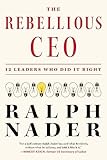Why do we have congressional chaplains and why do they make $170,000? Actually, the Senate Chaplain makes a bit less than that (in 2011, he made $155,000). That’s probably because the Senate has only 100 potential customers, whereas the House has 435 of them. In any event, considering the lack of heavy lifting, these salaries (underwritten by the taxpayer) seem fairly generous.
So, what, specifically, do these chaplains do? According to their charter, congressional chaplains perform “ceremonial, symbolic, and pastoral duties.” While it’s hard to know what those duties might have been in the 18th century, today they seem to consist mainly of opening sessions of congress with a prayer, making themselves available to House and Senate members for spiritual guidance, and giving visiting religious leaders a tour of the building. Not a bad gig.
Of course, trying to evaluate or defend the incomes of disparate jobs is a fool’s errand. It’s not only comparing apples and oranges, it’s comparing apples and papayas. Dishwashers make $16,000 a year, school teachers toil in the vineyard for $50,000, the minimum major league baseball salary (even for a bench-warmer) is $480,000, and Judge Judy gets $45 million a year for dispensing her aggressive, show biz justice. Forget about it.
The Senate Chaplain has his own crew. He has a Chief-of-Staff, a Director of Communications, and an Executive Assistant to help him dispense his duties. In 2011, the total budget for the Senate Chaplain’s office (including salaries and expenses) was $415,000. While that seems exorbitant from one perspective, from another perspective it seems meager, almost miniscule. After all, don’t we taxpayers spend $415,000 every 90 seconds or so in Afghanistan? It’s apples and papayas.
But the most conspicuous issue isn’t their salaries. Clearly, the elephant in the room is the apparent violation of the constitutional provision establishing the separation of Church and State. Clergymen prowling the corridors of government seems inappropriate. Simply put, why do we allow (and pay!) some sanctimonious, Bible-thumping zealot to step onto the floor of the U.S. Congress and lead our duly elected government representatives in a mandatory prayer?
The simple answer seems to be that no one cares—or, at least, no one cares enough to make (literally) a federal case out of it. Not that this hasn’t been challenged in the past, because it has; it’s been challenged several times. Even James Madison, the so-called “Father of the Constitution,” is said to have questioned whether creating a congressional chaplain violated the separation of Church and State provision.
Alas, it’s more complicated than that. Consider: The U.S. Constitution was ratified in 1787, and the first Congressional Chaplains (William Blinn, a Presbyterian, as House Chaplain, and Samuel Provost, an Episcopalian, as Senate Chaplain) were installed almost immediately thereafter, in 1789. It was as if they almost went hand-in-hand.
Presumably, if the framers genuinely believed that having a congressional chaplain violated the Constitution’s separation of Church and State provision, they wouldn’t have stood by and allowed the position to be created—not with the ink on the document barely dry. Or would they? Anyone looking for a “purist” answer isn’t going to find one.
So we’re left with this: The Constitution forbids the establishment of a state religion, forbids employers from asking job applicants if they’re church-goers, and forbids prayer in public schools. Yet churches don’t pay taxes, “In God We Trust” is scrawled on our money, and Congress is asked to pray to God before conducting its business. These seem contradictory. It would be interesting to know what Judge Judy thinks.










